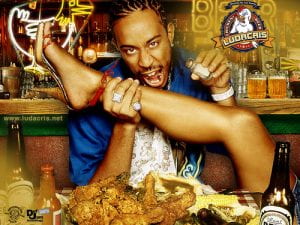In order to understand the ‘web’ perspective, we need to go to the source, A. E. Kings’ Intersectionality and the Changing Face of Ecofeminism, where they state “I have always approached intersectionality as being more of a web of entanglement, than a traffic junction or road. Each spoke of the web representing a continuum of different types of social categorisation such as gender, sexuality, race, or class; while encircling spirals depict individual identities.” This author defines the web very similarly to Kimberle Crenshaw’s definition of intersectionality, which reads “Intersectionality is a lens through which you can see where power comes and collides, where it interlocks and intersects.” These ideas mean that types of oppression can overlap, meaning that women of color face the discrimination of people of color, and the oppression of sexism. While the concept of the web, or intersectionality, is very simple, it is one of the most powerful tools that ecofeminists have to understand social justice and social dilemma.
I wanted to look at intersectionality through an ecofeminist lens, so I revisited an older topic, being the relationship between masculinity, meat, and the sexualization of women. I went back to the list of images that we could use for that assignment, the pieces of media that displayed these characteristics, and with one exception, there were no bodies of color. I believe this is because, stereotypically, women of color are not desired, so the marketing companies do not put people of color in their advertising, perpetuating this cycle that puts people of color down. Cacildia Cain’s The Necessity of Black Women’s Standpoint and Intersectionality in Environmental Movements describes the impact of this by stating that “Ecofeminism lacks black women’s standpoint and only focuses on white women’s oppression. Ecofeminists argue that environmental degradation and the exploitation of nature and women are rooted in the same capitalist, patriarchal, dominant culture.” Giving oppressed voices the space to speak would help us fight these problematic power structures and dynamics, as we can see from our meat example. But what about the one person of color I did see in the list?  This image is a bit of a racist caricature, using a predatory black male stereotype, as well as the ‘black people like fried chicken’ racial stereotype. These are problems that intersectional ecofeminism can analyze and understand, we still see muscle predation, but when applied to people of color it plays off a harmful stereotype.
This image is a bit of a racist caricature, using a predatory black male stereotype, as well as the ‘black people like fried chicken’ racial stereotype. These are problems that intersectional ecofeminism can analyze and understand, we still see muscle predation, but when applied to people of color it plays off a harmful stereotype.
Ecofeminist issues are racial issues. Ecofeminist issues are queer issues. Ecofeminist issues are gendered issues. All forms of oppression are valuable in order to have a progressive framework in 2020. Expanding the ‘web’ to get more oppressed group’s voices into the conversation is something that the world has needed to a long time, and with the unifying idea that Earth need protecting, we should be able to do that.

